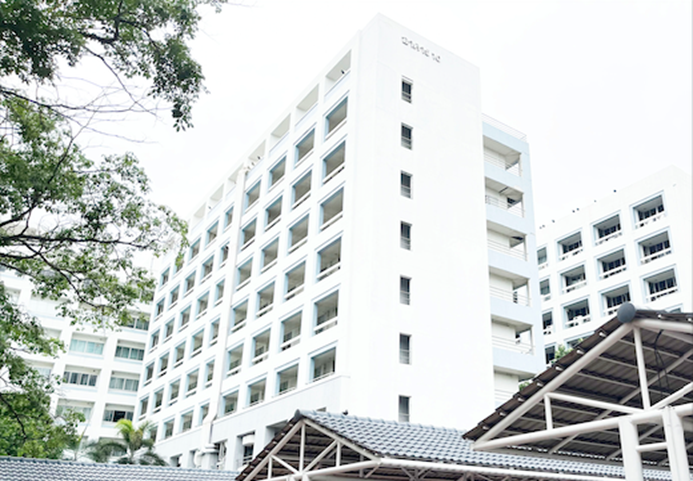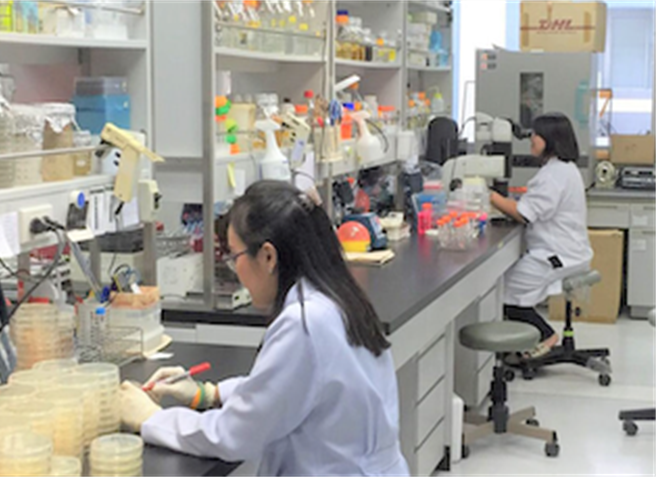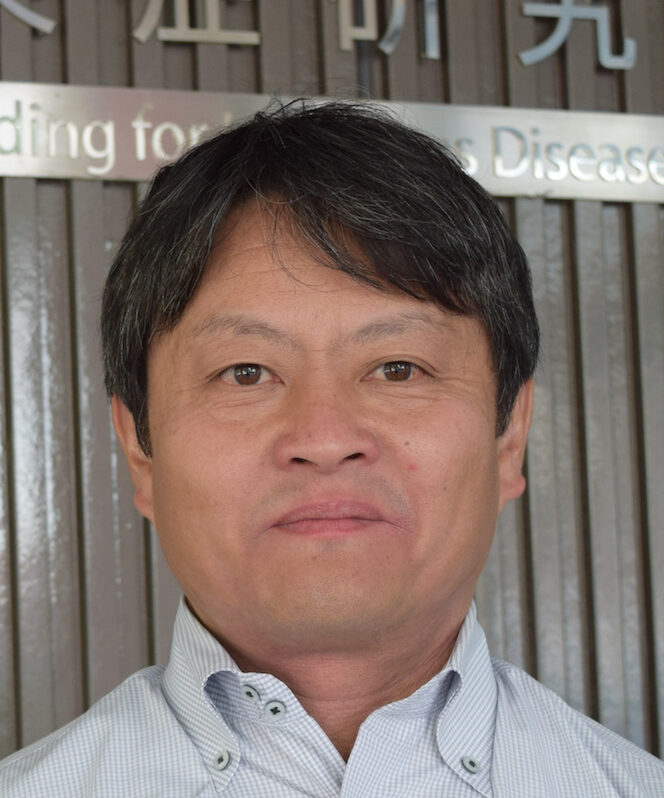Introduction of overseas research bases
The University of Osaka Thailand base
Promoting basic research into emerging and re-emerging infectious diseases at the Japan-Thailand Joint Research Center for Infectious Diseases

Since 1958, the Research Institute for Microbial Diseases, Osaka University, has been building strong partnerships with research institutes and universities in Thailand. Through collaborative research and educational activities, we aim to address pressing infectious disease challenges and contribute to global public health.
In particular, we have developed close personal and institutional ties with the National Institute of Health under the Department of Medical Sciences, Ministry of Public Health of Thailand. In 2005, the department allocated approximately 600 square meters of space for our Thailand base, where we established BSL-2 and BSL-3 laboratories along with offices. Recently, we have been collaborating with the Epidemiology Division of the Ministry’s Department of Disease Control to conduct research on infectious diseases in Thailand.
The main research subjects of this center are diarrheal diseases (e.g., Vibrio cholerae, Shigella, Salmonella, norovirus, rotavirus) and mosquito-borne viral diseases (e.g., dengue virus, chikungunya virus). Since its establishment in 2005, the center has collected a large number of enteric pathogens, which have been utilized for the development of diagnostic methods and basic research.
We also collaborate with health institutions across Thailand to investigate diarrheal disease outbreaks. This involves detecting and analyzing pathogens from stool specimens sent from various locations. These efforts aim to enhance the early detection of key pathogens, prevent the spread of infections, and improve infectious disease control measures.
For mosquito-borne viral diseases, we collect mosquito samples from dengue-endemic and forested areas in collaboration with local researchers to isolate various mosquito-borne viruses. Additionally, we conduct sero-epidemiological surveys of mosquito-borne viral diseases using samples from patients and healthy individuals.
Major papers and achievements
- First recorded food-borne outbreak of gastroenteritis caused by enteroinvasive Escherichia coli serotype O8:H19 in Thailand. Eur J Clin Microbiol Infect Dis. In press.
- Genetic regions affecting the replication and pathogenicity of dengue virus type 2. PLoS Negl Trop Dis, 2024 Jan 8;18(1):e0011885.
- Flagella-related gene mutations in Vibrio cholerae during extended cultivation in nutrient-limited media impair cell motility and prolong culturability. mSystems, 2023 Oct 26;8(5):e0010923.
- Spatiotemporal variation in risk of Shigella infection in childhood: A global risk mapping and prediction model using individual participant data. Lancet Glob Health. 2023 Mar;11(3):e373-e384.
- Emergence of Vibrio parahaemolyticus serotype O10:K4 in Thailand. Microbiol Immunol. 2023 Apr;67(4):201-203.
- Seroprevalence of Flavivirus Neutralizing Antibodies in Thailand by High-Throughput Neutralization Assay: Endemic Circulation of Zika Virus before 2012. mSphere. 2021 Aug 25;6(4):e0033921.
- Etiologic features of diarrheagenic microbes in stool specimens from patients with acute diarrhea in Thailand. Sci Rep. 2020 Mar 4;10(1):4009.
- Key Amino Acid Substitution for Infection-Enhancing Activity-Free Designer Dengue Vaccines. iScience. 2019 Mar 29:13:125-137.

A word from the Director
Osaka University has been fostering long-standing collaborations with Thai research institutes and universities for over half a century. Many Thai researchers have also pursued advanced degrees at our university. At our Thailand base, we have been conducting locally rooted research and fostering relationships built on trust. In partnership with national agencies such as the Department of Medical Sciences and the Department of Disease Control, we are addressing public health challenges, including infectious disease outbreaks in Thailand. We encourage researchers to join us in these collaborative efforts to tackle infectious disease issues across Asia.

Research Director or Center Director: Tetsuya Iida
Position: Professor, Osaka University
Degree: Doctor of Medicine
(Osaka University Institute of Microbial Diseases)
Biography
| 2015/04 - Present | Professor, Department of Bacterial Infection, Research Institute for Microbial Diseases, Osaka University |
|---|---|
| 2005/12 - 2015/03 | Specially Appointed Professor, International Research Center for Infectious Diseases, Research Institute for Microbial Diseases, Osaka University |
